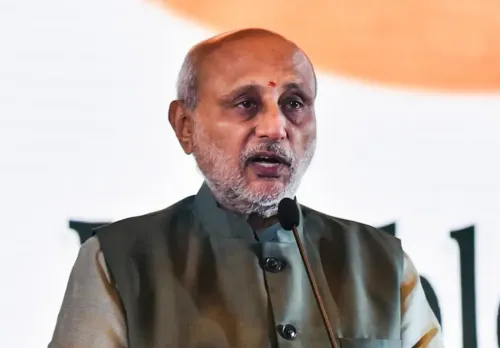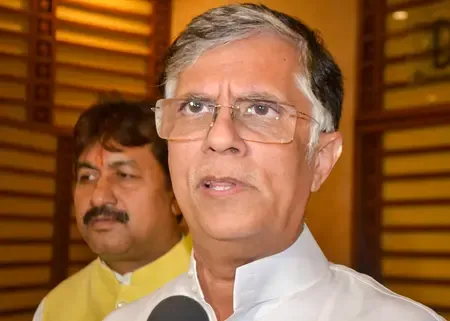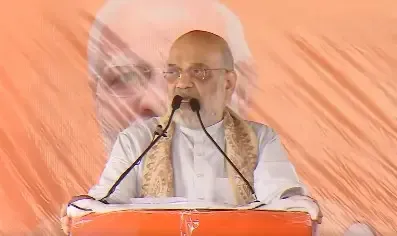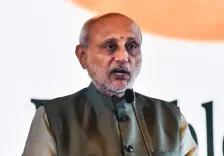Why Are Farmers in Punjab Protesting the Land Pooling Scheme?
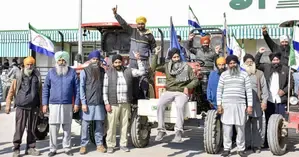
Synopsis
Key Takeaways
- Massive protests by farmers signify deep concerns over land rights.
- The tractor rally was a show of unity among various farmer organizations.
- Upcoming mahapanchayats are set to keep the momentum of the protests.
- Government's claims of mutual consent are challenged by farmers' fears.
- The protests highlight the ongoing struggle between agricultural policy and farmer welfare.
Chandigarh, July 30 (NationPress) Tens of thousands of farmers throughout Punjab took to the streets on Wednesday in a significant tractor rally opposing the state government's land pooling scheme.
The protest's effects were notably pronounced in the Ludhiana district, where the government plans to acquire 45,861 acres, prompting demonstrators to block major roads and chant slogans against the AAP government.
This protest, organized by the Samyukt Kisan Morcha (SKM) and supported by various other farmer unions, including the Kisan Mazdoor Morcha and SKM (non-political), served as a powerful display of unity among all leading farmers' organizations.
SKM leader Balbir Rajewal declared the tractor march a triumph, stating its effects were visible in multiple locations within Ludhiana district, such as Kumkalan, Dakha, and Jagraon.
The impact of the protest was also felt in Bathinda, Amritsar, Ferozepur, Moga, Patiala, Jalandhar, and Mohali, where farmers expressed that their livelihoods are at risk.
Kisan Mazdoor Morcha coordinator Sarwan Singh Pandher urged the government to withdraw this policy or brace for escalated protests.
President of the BKU (Dakaunda), Manjit Dhaner, said, "The tractor is not merely a farming implement; it is our emblem of resistance. We plant seeds with it, and now we wield it to safeguard our rights."
In upcoming actions against the land pooling policy, mahapanchayats are scheduled for August 7, 20, and 24, organized by farmers' groups.
Additionally, farmers have announced a motorcycle rally for August 11.
However, State Finance Minister Harpal Cheema has asserted that the land pooling scheme is farmer-friendly and founded on mutual agreement.
"Not a single inch of land will be taken from any farmer without their consent. The decision to give land rests solely with the farmers," Minister Cheema informed the media.
This statement from the state Finance Minister comes in response to farmers' criticisms of the scheme.
He condemned the Congress, BJP, and Akali Dal, stating that during the past decade and a half of previous administrations, numerous illegal colonies were established in Punjab, lacking basic amenities such as roads, electricity, water, and sewerage.
Many individuals encountered challenges regarding property registrations, and countless people lost significant sums to builders' fraud, which devastated many families, he added.

